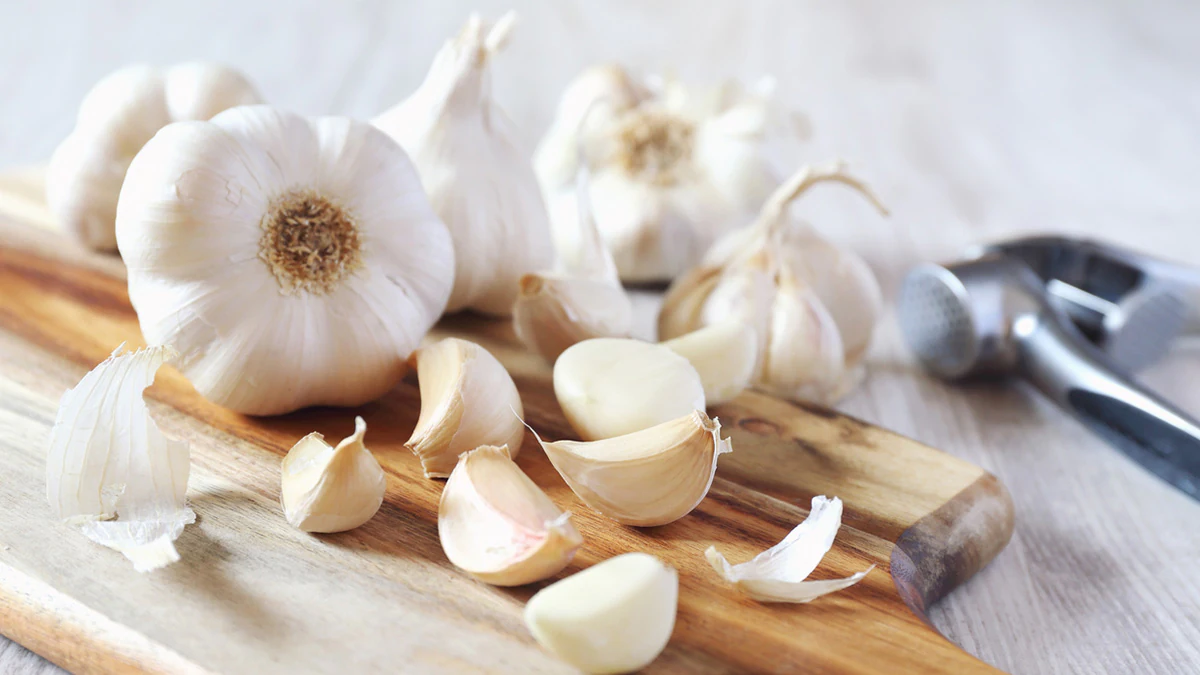
Looking for a natural way to boost your oral health? You might find the answer right in your kitchen. Garlic, a staple in many savory dishes, can also serve as a powerful tool for improving your dental hygiene.
Especially if you’re between the ages of 45 and 65, you may be surprised at just how beneficial garlic can be for your teeth and gums. Let’s take a closer look at how this simple ingredient can help reduce tartar and brighten your smile in just a few minutes.
Garlic contains allicin, a potent natural compound that’s released when the clove is crushed. Allicin has strong antimicrobial properties that help kill harmful bacteria in the mouth, which in turn helps to prevent tartar build-up and gum infections.
Aside from keeping your mouth clean, garlic may also help naturally whiten teeth over time — a double benefit for your oral care.

Garlic Paste
Creating a garlic paste is easy. Simply crush a fresh clove and apply it directly to your teeth and gums. Let it sit for one to two minutes, then rinse your mouth thoroughly with water.
If the taste is a bit much for you, mix the garlic paste with a pinch of salt. This not only enhances its antibacterial effects but also gives it a mild abrasive quality that can help in removing tartar.
Garlic Mouthwash
To make a simple mouthwash, steep minced garlic in warm water for a few minutes, then strain out the solids. Swish the garlic-infused water in your mouth for about a minute before rinsing. It’s an easy way to tap into garlic’s natural bacteria-fighting powers.
Freshen Your Breath
Because garlic’s strong odor can linger, follow up by rinsing your mouth with apple cider vinegar or chewing fresh parsley or mint leaves to neutralize the scent.

Sensitivity and Precautions
If your gums or teeth are sensitive, be careful — garlic may cause irritation. Test a small amount first, and if needed, speak with your dentist before adding it to your daily routine.
While garlic can reduce bacteria and slow the development of tartar, it’s important to understand that it won’t remove hardened tartar that’s already present. For that, you’ll still need professional dental cleaning. Regular check-ups remain essential for maintaining good oral health.
The unconventional use of garlic in dental care, along with its potential to cause discomfort, may explain why most dentists don’t recommend it as a go-to solution for tartar control or teeth whitening. Still, its natural antibacterial properties make it a compelling option for some.
Including garlic in your oral hygiene routine can be a quick and effective way to manage bacteria and promote a whiter smile. Just remember to use it thoughtfully and as part of a complete dental care routine that includes brushing, flossing, and dental visits.
Natural remedies can be helpful, but they don’t replace professional care. So go ahead — give garlic a try and see how it can contribute to a healthier, brighter smile.

